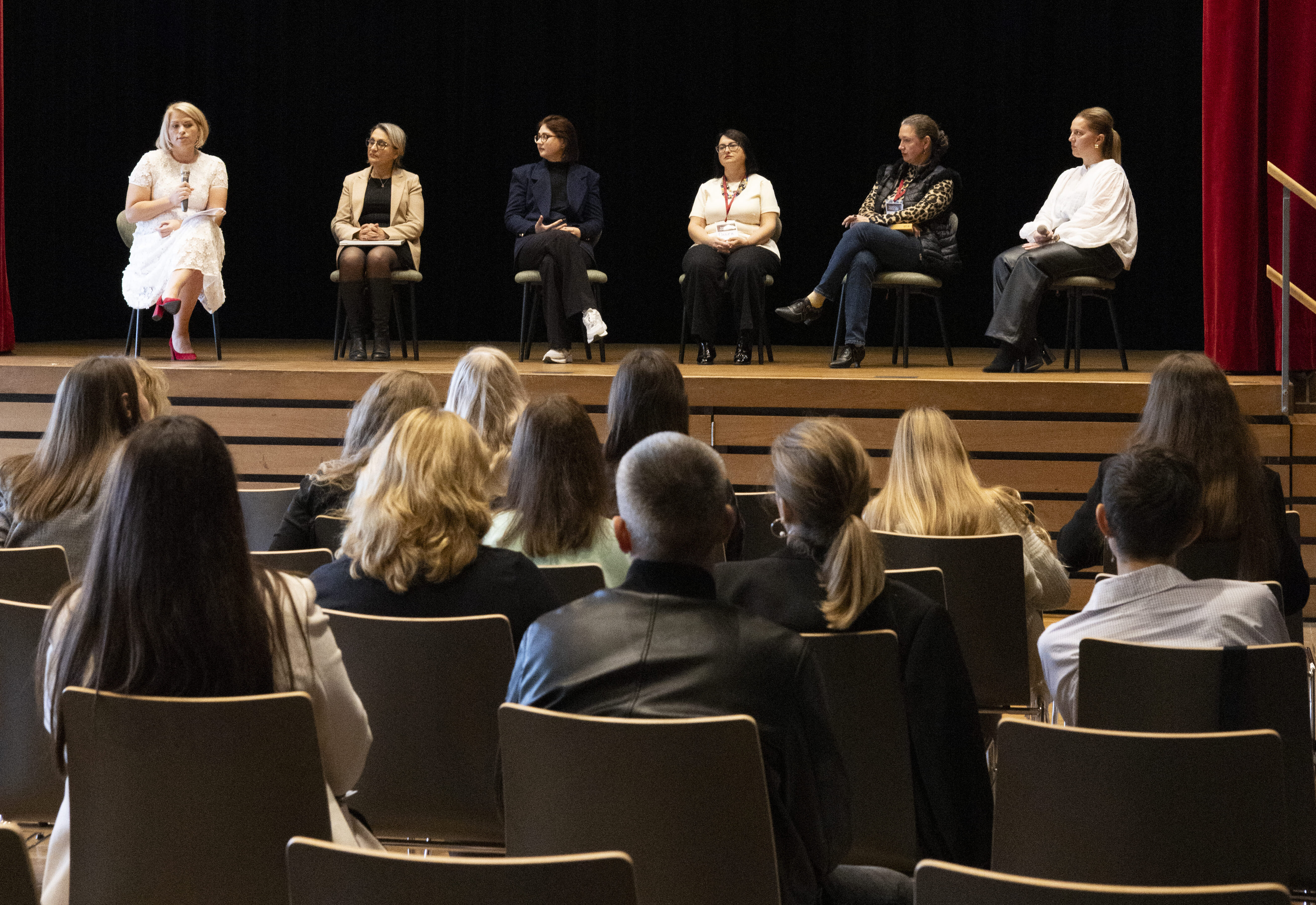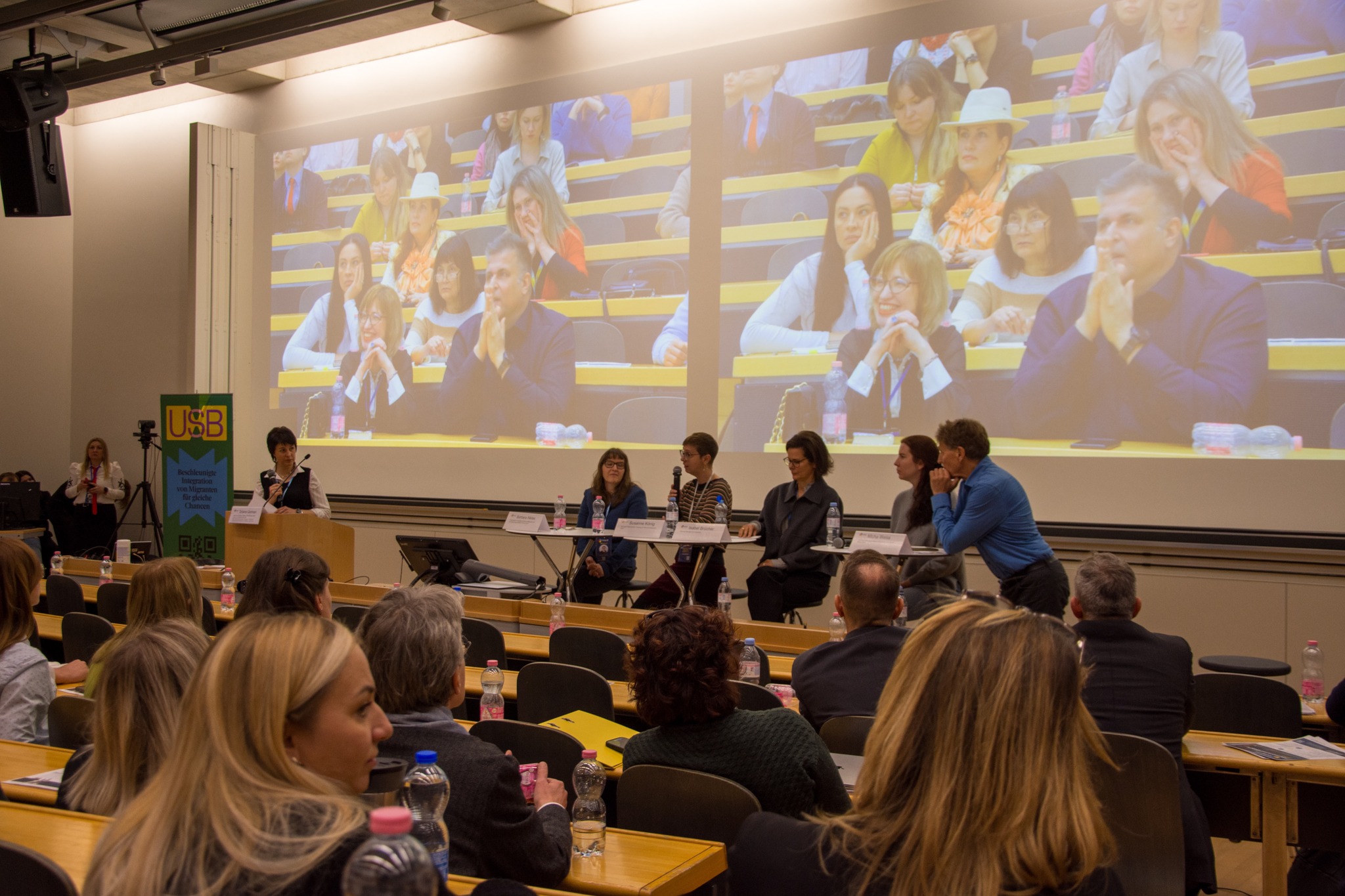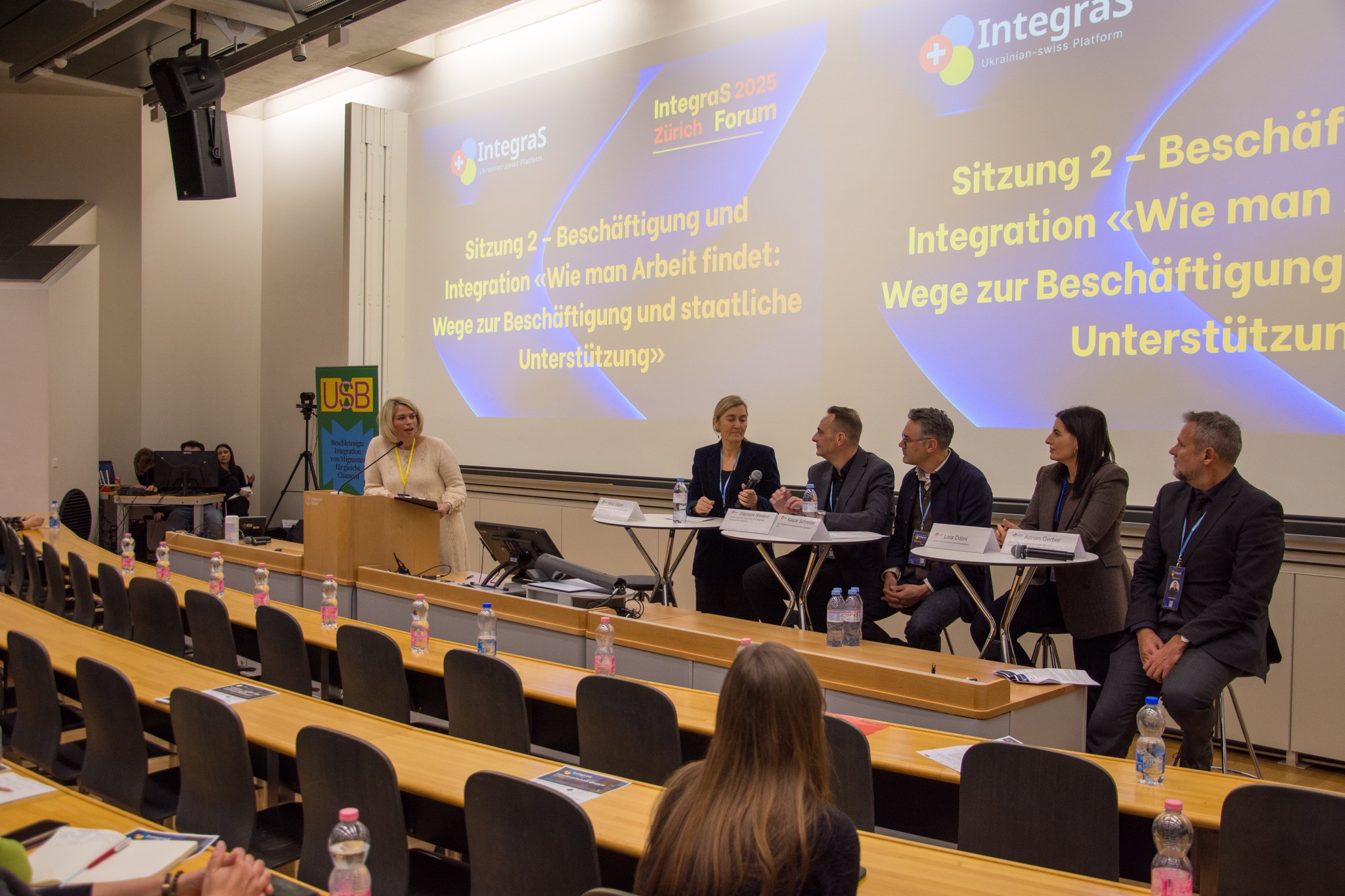In Horgen, Switzerland, the forum “Strength in Resilience: Mental and Physical Health, Self-Care, and Integration” recently took place — an event that served as a snapshot of how the Ukrainian community in Europe is moving from survival to creating its own culture of psychological integration. Ukrainians from various cantons and Liechtenstein attended the forum — people seeking not only safety but also space for development, community, and recovery.
Psychotherapist and head of educational programs at the USB Association, Svitlana Manzer, outlined why Ukrainian psychologists play a crucial role for refugees today and the professional and legal limitations they face in Switzerland.
A Profession Between Two Realities: High Demand, Limited Access
Ukrainian specialists are well-acquainted with the numerous traumas of war — from acute stress to prolonged uncertainty experienced by millions. That is why their expertise is so needed by Ukrainians trying to restore inner balance after forced relocation, learn to cope with trauma, and simultaneously develop strategies for integration in a new country.
However, the reality in Switzerland is more complex: at the very moment the community most needs support in their native language, psychologists face lengthy diploma recognition processes, high language requirements, and years of waiting. For many, this means a professional pause that can deeply affect their self-identity.
“Even with years of experience, you have to go through the legalization process. It’s not always quick, but it’s the path to full professional practice in Switzerland,” says Svitlana Manzer.
In this tension — between high demand and limited access — a need arises for alternative models of engagement that allow support to be provided today without violating Swiss law.
Social Initiatives: Support Available and Safe Today
While specialists undergo formal procedures, more and more of them are joining social initiatives and self-help communities. Here, they can conduct workshops, lectures, group meetings, and resilience-building activities — all in formats that do not require clinical practice.
A well-known example is the women’s club Zittistiikist in Thun, created on the USB platform. It is a space where, within a social project and self-help group, women work on strengthening resources, receive emotional support, and benefit from gentle guidance by a professional psychologist. Over time, the initiative evolved into a sustainable women’s club that provides psychosocial support and helps participants navigate their integration path.
For the community, it is an opportunity to receive professional support in their native language. For specialists, it is a way to remain active in their profession, support themselves, and work for the benefit of the community.
Gradually, this is giving rise to a new culture of “soft integration”: through interaction, group work, knowledge exchange, and strengthening horizontal connections.
What Ukrainians Experience: Language Barriers, Uncertainty, and Lost Connections
Psychologists emphasize that Ukrainians in Switzerland face a wide range of psychosocial challenges. This includes prolonged living in uncertainty and the constant anticipation of news from Ukraine, which exhausts the nervous system. Many live in a state of “frozen future,” where making decisions and planning becomes difficult.
Added to this are language barriers that complicate access to local therapy, cultural differences in attitudes toward psychological help — especially among the older generation — and the loss of familiar support networks. Families with children often face double pressure: stabilizing their own emotions while helping the younger generation adapt.
In this complex picture, specialists who understand the Ukrainian cultural and emotional context are particularly valuable.
Ethics as the Basis of Trust: Why “Pseudo-Therapy” is Dangerous
Alongside the growing demand is a rising number of people providing psychological services without proper education. Svitlana Manzer warns that unprofessional advice, reckless recommendations, or “quick fixes” can cause more harm than good.
“Sometimes people without qualifications take on difficult topics, recommend medications, or offer ‘magic methods.’ This undermines trust in the entire community,” she says.
Thus, professional ethics becomes a key component of integration: not just a formal requirement, but a way to protect those who have experienced war and loss.
From Forum to Support Center: Creating a New Space
All these challenges naturally lead to the next step. Forum organizer Inna Chala believes that Ukrainian specialists should unite, and the community should have a permanent, safe space for recovery. This is how the idea of creating a Psychological Support Center arose, open to both Ukrainians and other migrants.
“It should be a place where you can speak out, find understanding, and feel that you are not alone,” she explains.
In the future, the Center could become not only a hub for emotional relief but also a platform for educational programs, creative meetings, professional training, and joint projects. It will be an environment that simultaneously supports, unites, and empowers people to move forward — forming a new culture of psychological integration for Ukrainians in Switzerland.



